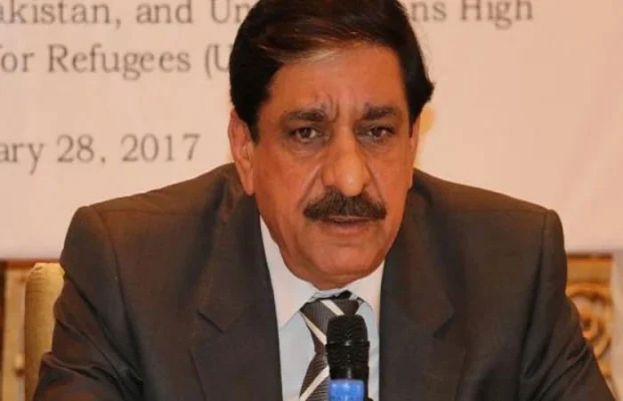Addressing a seminar titled “Pakistan’s Recent Diplomatic Successes, Future Prospects, and Evolving Defence Strategy” at a local hotel in Lahore, the former adviser said that India’s internal political instability could drive it towards renewed aggression.
“New Delhi is well aware that Pakistan possesses advanced missile technology capable of countering any hostile move,” he remarked, adding that “as the only Islamic nuclear power, Pakistan will always stand as a formidable challenge to its adversaries.”
Lt Gen (retd) Janjua, a seasoned observer of South Asian security dynamics, noted that Pakistan’s global standing had improved following recent defence and diplomatic achievements, while India found itself increasingly isolated on the international stage.
He further accused the United States of systematically “undermining Muslim leadership” across Iraq, Libya, Egypt, and Syria, asserting that Pakistan had emerged as the “last standing Islamic nuclear power representing the Muslim Ummah.”
Meanwhile, former Air Marshal (retd) Sajid Habib declared that the Pakistan Air Force remained second to none in the region. “If India dares another attack, this time we’ll down seventy of its aircraft, not just seven,” he warned, lauding the force’s performance during Operation Bunyanum Marsoos.
Former Rear Admiral (retd) N.A. Rizvi also emphasised the importance of fully operationalising Gwadar Port, saying Pakistan would remain exposed to threats until then.
“Our naval defences are strong enough to deter any enemy, but Gwadar’s activation is essential for strategic depth,” he said, adding that Pakistan could “once again rise proudly among nations” under capable leadership.
Foreign-policy analyst Muhammad Mahdi called Pakistan’s balanced relations with China and the United States a diplomatic success but stressed that “capacity building is urgently needed.”
He lamented that no substantial foreign investment had yet arrived and urged institutional strengthening particularly within the Foreign Office to cope with evolving regional challenges.
Dr Naveed Elahi said the Tehreek-e-Taliban Pakistan (TTP) was not merely a domestic threat but a global one. Noting that 601f Pakistan’s population comprised youth, he termed overseas employment opportunities a “positive sign” for the country.
Major (retd) Nayyer Shehzad declared that “Allah Almighty made Pakistan victorious against India,” recalling that US President Donald Trump had “acknowledged Pakistan’s role dozens of times.”
Analyst Salman Ghani said the armed forces had “fulfilled their duty,” but warned that Pakistan’s political and economic sectors “still require deep structural reform.”
The speakers collectively emphasised that Pakistan’s security, diplomacy, and economy must advance in tandem.
They urged the leadership to accelerate Gwadar’s completion, attract investment, and strengthen institutional capacity to safeguard the nation’s long-term strategic interests

